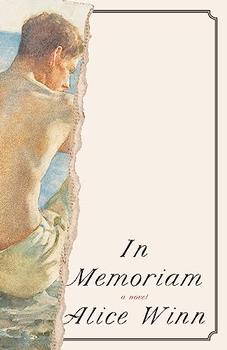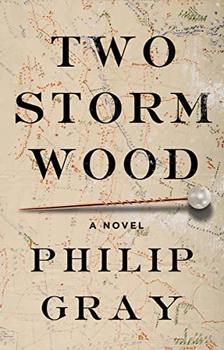Summary | Excerpt | Reading Guide | Reviews | Beyond the book | Read-Alikes | Genres & Themes | Author Bio

P.S. Duffy's debut, The Cartographer of No Man's Land, is a complex historical fiction novel set in war-torn France and in far-removed Nova Scotia during 1917-1918. The plot follows the struggles of sailor and artist Angus MacGrath as he enlists in the Canadian Expeditionary Force (see 'Beyond the Book'), primarily to determine the fate of his missing brother-in-law, a soldier who has disappeared in the fighting in France. It also tells the story of the family MacGrath has left behind: his pacifist father, a grieving wife, and, most important, his thirteen-year-old son Simon Peter, who becomes the novel's other focal point.
Duffy covers a lot of ground, touching on a wide range of themes. There are, of course, the subjects one would expect in a book set in WWI: the horror and chaos of trench warfare; heroism; senseless waste of life; and love between comrades. Duffy deftly brings all these topics together with descriptive writing that really draws her readers in. She captures both the destructiveness of war and its occasional moments of beauty in language that borders on poetry:
That evening during stand-to, the sky crossed itself with streaks of lavender, yellow, and rosy pink over the unhinged earth, over the coiled barbed wire, unexploded shells, rusting equipment left to rot in No Man's Land – a cratered landscape of ruin. Had his pastels survived, Angus would have been hard-pressed to put them to paper. For in that silken sky above and wounded earth below lay all one needed to know – a knowing so obvious, it hardly needed an artist to expand it into a larger truth.
In addition to the sections of the book that concentrate on WWI, Duffy explores other ideas including, among others, the prejudice faced by those of German descent in North America, pacifism vs. aggression, women's rights, life in a small coastal community, the effects of war on those who've returned from it, first love, and coming of age. I generally think authors attempting to cover this much territory are trying to do too much; it's hard to address so many diverse issues adequately and often the narrative drags or becomes scattered. Not so in this case; the various themes are so deftly interwoven that one is barely aware of how dense the plot is until one steps away and looks back at the reading experience in wonder.
I did find the book a bit slow for the first fifty pages or so, and felt that it took me a little longer than it should have to adjust to the author's style. I was very happy that I'd stuck with it though, as it was definitely worth the effort; once Angus gets to the Front the story speeds along and the novel becomes quite the page-turner. In the first half most of the action is centered in France with the occasional chapter back home feeling like a distraction, but gradually the narrative shifts until, by the book's end, it's the chapters set in Nova Scotia that make up the bulk of the story and are more interesting.
I also truly enjoyed the author's characterizations. Angus comes across as contemplative and mature, someone who doesn't want to go to war but feels he must. The character is clear-eyed, lacking the illusions of youth and knowing that death in battle is not heroic but a tragic squandering of life. Simon Peter is also well-drawn; the author realistically paints him as a boy on the cusp of manhood, with all the contradictions and confusion that accompanies that stage of life for so many. Indeed, nearly all the characters one encounters in the novel – and there are many – are richly three-dimensional.
My only real complaint is that there really wasn't enough resolution to the various plot threads to suit my taste. There's a sense of disconnect between the characters toward the end; most seem to be carrying on, but somewhat isolated from those they love even though they live in close proximity. One gets the feeling that the physical distance necessitated by the war has in fact created an emotional distance that's much harder to bridge. The author does provide hints that the fathers and sons portrayed will repair their relationships and will recover from their emotional wounds, but I found myself wanting more – more closure, more connection, more happiness and concrete redemption for these characters. While it's a very realistic portrayal – after all, we seldom have nice, neat wrap-ups to the trials in our lives – I felt it didn't quite work here. It seemed more like the novel simply petered out than coming to a solid conclusion.
That criticism aside, I found The Cartographer of No Man's Land a wonderfully written addition to WWI historical fiction. Duffy's gorgeous prose, affecting characters and multifaceted plot are sure to win her many fans with this, her debut novel, and aficionados of WWI literature will definitely want to put this one on their lists.
![]() This review
first ran in the November 6, 2013
issue of BookBrowse Recommends.
This review
first ran in the November 6, 2013
issue of BookBrowse Recommends.

If you liked The Cartographer of No Man's Land, try these:

by Alice Winn
Published 2024
Winner: BookBrowse Debut Book Award 2023
A haunting, virtuosic debut novel about two young men who fall in love during World War I.

by Philip Gray
Published 2022
Three months after the end of the Great War, a young woman sets out across the wastelands of the Western Front to learn the fate of the man she loved.
Judge a man by his questions rather than by his answers.
Click Here to find out who said this, as well as discovering other famous literary quotes!
Your guide toexceptional books
BookBrowse seeks out and recommends the best in contemporary fiction and nonfiction—books that not only engage and entertain but also deepen our understanding of ourselves and the world around us.